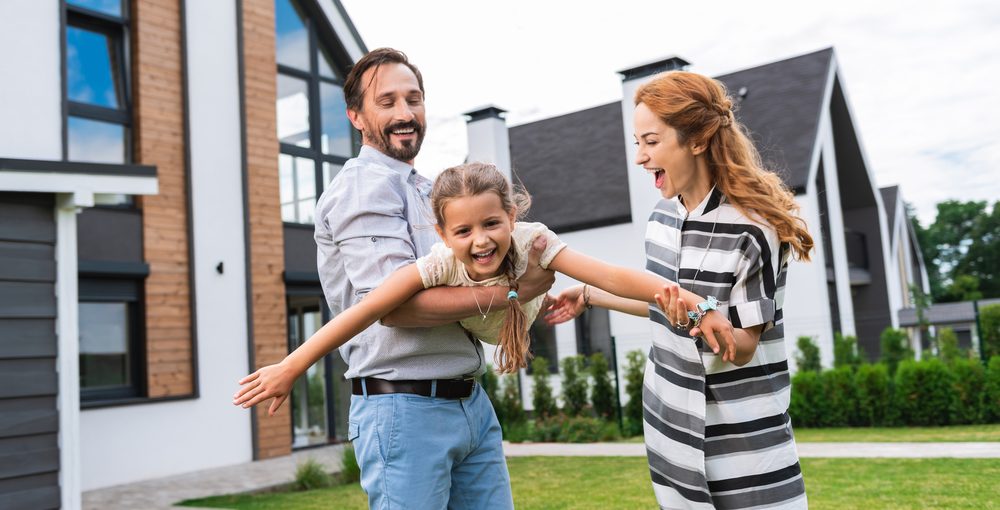Seven things to know when buying a second-hand house
If you’re on the lookout for a secondary residence, purchasing a pre-owned property could be the ideal option for you. According to a 2020 estimate by the National Association of Home Builders, there are approximately 7.15 million second homes available in the U.S. alone.
They’re available in almost every state; however, they’re some long-term responsibilities that come with owning a second-hand home.
For example, real-life considerations include paying taxes, finding good renters, and, let’s not even talk about the upkeep of HVAC filters.
With that said, here are some of the red flags to look out for when purchasing a second-hand home:
1. The Foundation Is Crumbling
You may be looking for a vintage Victorian-era property; however, most old homes have issues with their basic structure. These could include hairline cracks, uneven floors, sloping doors, and windows.
Some of these issues can be minor; however, if the gaps are large, it can indicate a more serious problem.
Experts suggest some tips to test the condition of the house. For example, for an uneven floor, taking a marble or a gold ball with you will be helpful. Set it on the floor; if it rolls, it is a clear sign of an uneven floor.
2. There Are No Signs of Maintenance
Many homeowners neglect their property for years, neglecting the routine upkeep, which should be done at least once a year. A focused homeowner would ensure that the chimney was regularly cleaned, the roof was inspected before the rainy season, the windows were checked for cracks, and the water heater was flushed annually.
Buying a home that isn’t maintained can have more of a financial impact on the buyer – than what they were initially prepared for. A home inspection can reveal more underlying problems, like a leaking roof, bad flooring, or dirty HVAC Filters. So conducting a thorough survey of the home is crucial before signing on the dotted line.
3. Analyze the Asset Potential
The value of a property is always fluctuating, depending on the inflation rate and other factors. While prior trends indicate an appreciation, analyzing the property’s condition, location, and buyers’ interest is also important.
Someone who wants to invest with the intention of long-term goals will not be interested in buying a home in a residential area.
They’re more likely to go for commercial properties where they can continue earning money by turning it into a shop or renting it out.
4. Consider the Taxes
Depending on the area, the tax ratio varies accordingly. If you’re looking for a vacation home, It will be classified as a personal residence or a rental property, depending on the clauses by the IRS. In most cases, you must report your rental income regardless of the category.
It is advised to talk to an experienced professional before purchasing the property. Calculating unexpected and expected liabilities and tax deductions can save you from the financial drain.
5. Be Vary of Scent
Most sellers, when meeting potential buyers, tend to hide the problems of the house. They might distract you with freshly-baked cookies or musk-scented candles to mask an unpleasant smell.
Be wary of such smells rather than being distracted. Whiff around in every room, even the bathrooms and neighborhood. It can save you from a lot of trouble in the future, as these smells can indicate water damage, smoke damage, mildew, and even fungus.
6. A Poor Tiling Job
Sloppy construction work, especially on the tiling, can tell you a lot about the property. If the tiles have huge gaps or are placed unevenly, it can indicate a DIY job rather than be done by a professional. It is a sign that the owners may have remodeled the whole house rather than being examined by a professional.
If the house is in poor condition, you’re probably looking at huge costs to restore the property.
7. The Purpose You Intent to Use It For
If you’re hunting for a potential vacation home, there may be a few factors to consider before locking it down. A second home demands a lot of maintenance, and if you’re not using it for most of the year, it may be a waste of space.
Vacation House
If your family vacations often, traveling to the same location every year may not be a good idea. Additionally, it will be hard to juggle a second home’s expenses while catering to other costs. These could include grocery, renovation, and other conveniences.
Having a separate vacation home and a fun getaway from the world’s reality can be exciting – especially if you like to go to the same place.
However, if your family likes to travel to different places, putting money down for a property you won’t use regularly may not be a good idea. You can feel stuck in one place, and not to mention, it will also make it difficult to juggle expenses.
Renting It Out
To earn extra money on the side and to help with the upkeep, you can consider renting out your property when it is not in use. You can give it on rent for a few months or even register it on Airbnb for a few days.
It can be a smart way to subsidize your vacation home; however, tax laws and regulations must be considered. In many states, it is illegal to have an Airbnb unless the permanent resident is residing in the apartment or the apartment is being rented out for more than 30 days.
Final Thoughts
It can be exciting to dream of a second home; however, there are certain responsibilities to consider as well. Ask yourself if you’re ready for it and run a financial check to see if you can splurge on a second home.
It is advisable to consider all factors when making such a huge financial commitment.


